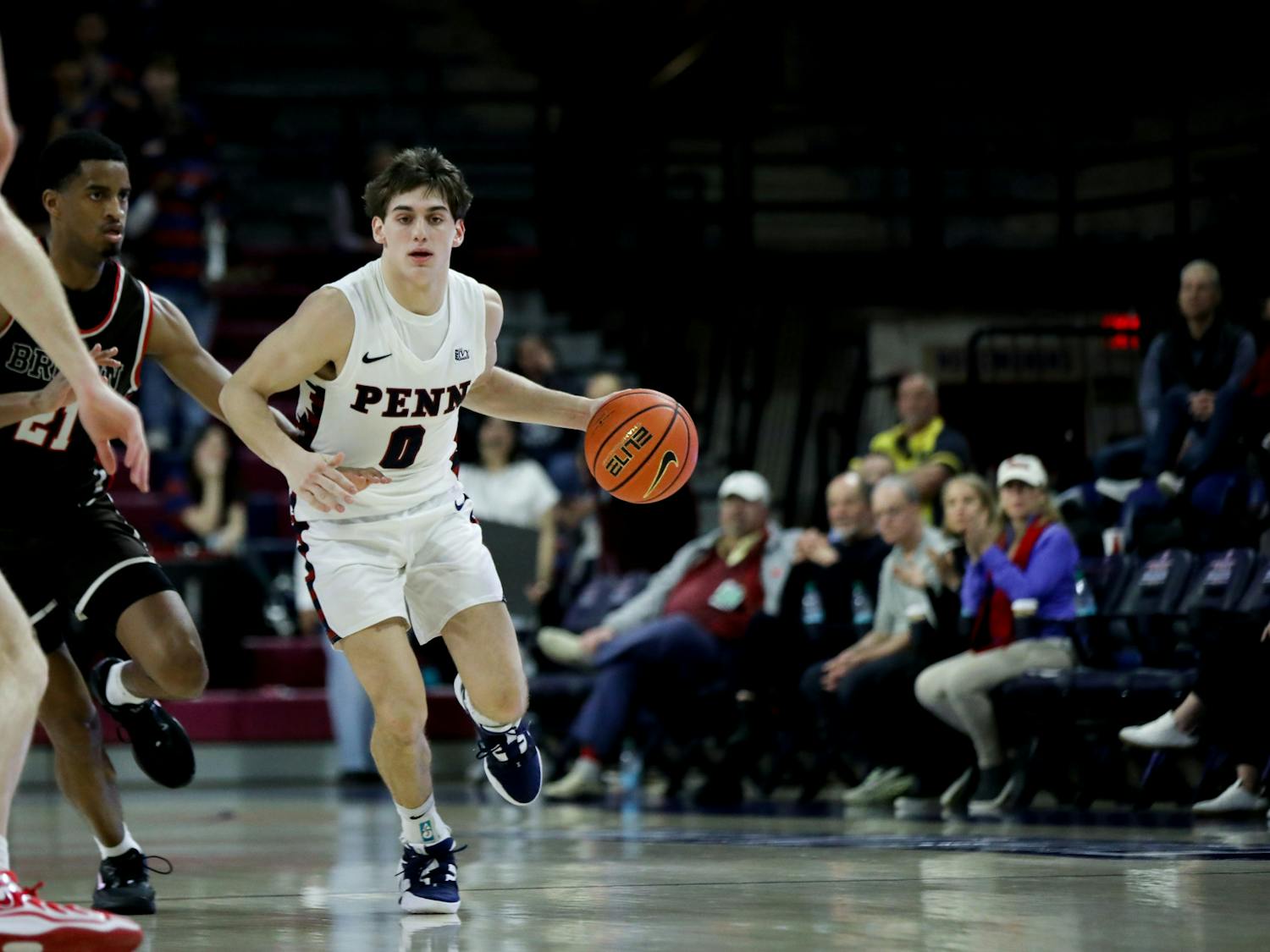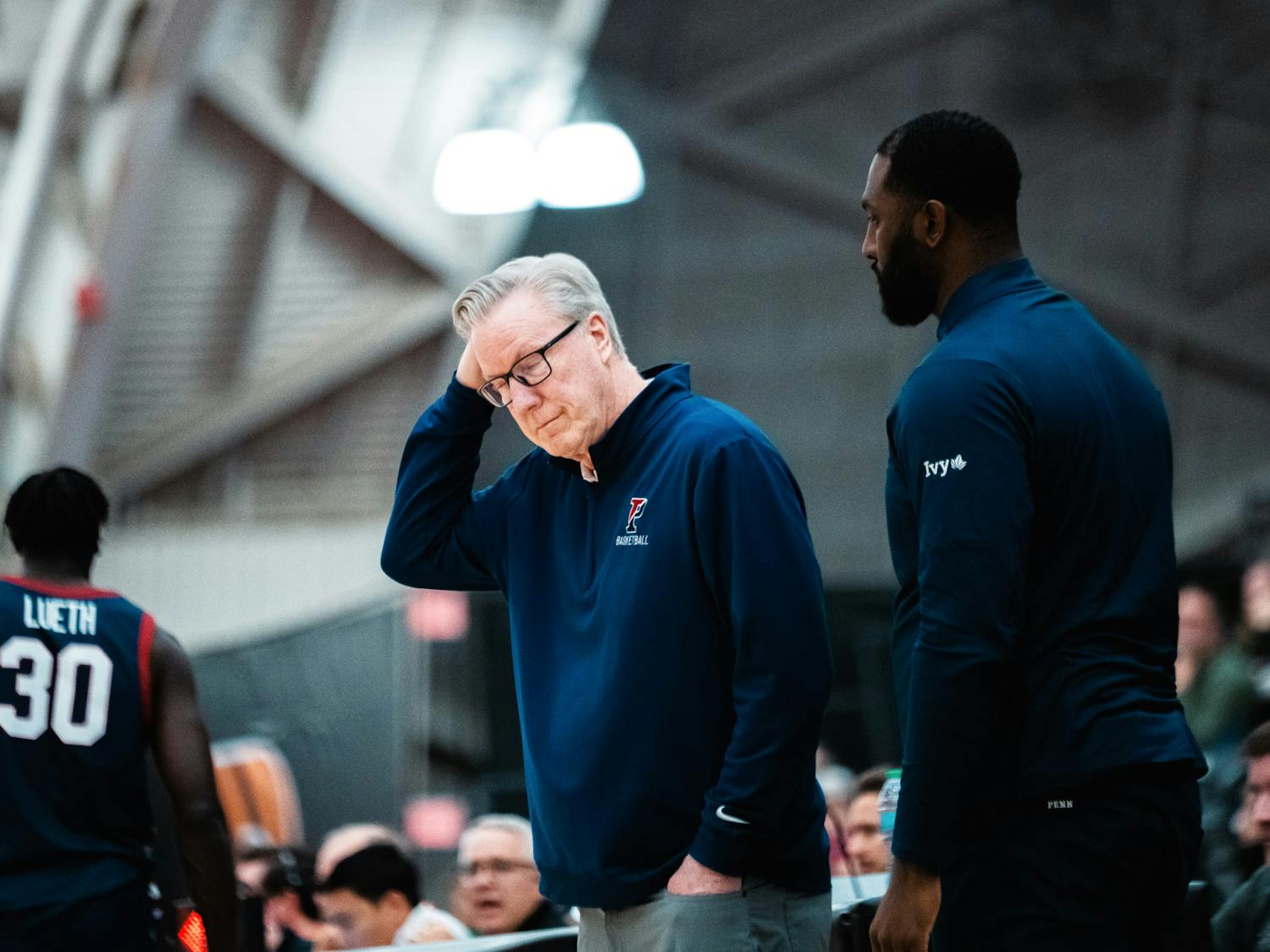PRINCETON, N.J. -- Even against a team with a possession problem, the Quakers men's lacrosse team couldn't hold onto the ball.
No. 7 Penn may not have thought of themselves as favorites to beat No. 11 Princeton on Tuesday, but it probably didn't count on getting dominated in the ball-control battle.
"We're not used to having possession like we did tonight," said Princeton coach Bill Tierney.
But Penn made the Tigers look like pros in that department.
The Quakers couldn't seem to keep Princeton away from their goal and allowed the Tigers to control the tempo most of the game.
A major reason for this was an inability to get possession in the first place.
The Quakers lost the draw control battle 14-11 and are now barely above .500 on faceoffs for the season. In fact, if it weren't for a domination of lowly Siena in that category to start the season, Penn's success rate would be hovering around 46 percent instead of 50.2.
And Princeton was even worse. The team has managed to win only 47.3 percent of their faceoffs on the year, something Tierney noted as one of his team's major weaknesses.
But it was obvious that the Tigers knew how to put the faceoffs they did win to good use. They went on two quick runs of three and then two goals, all of which came seconds after controlling the draw.
Penn, meanwhile, failed to enter most of its possessions quickly and was mostly unable to score in transition.
The easy goals surrendered to the Tigers killed any momentum that Penn was building up.
"Winning those ones when we went on those spurts ... that changed the complexion of the game," Tierney said.
While the Tigers' faceoff advantage was slim on paper, Princeton sophomore Alex Berg -- who took the majority of the draws -- believes their success was due to more than just winning the draw control.
He said that taking advantage of those opportunities and preventing Penn from doing the same made the difference.
"The wings did a great job," Berg said. "We just tried to make it so he couldn't have anything without having to fight for it. ... When you start hitting people, things work out."
That was Princeton's strategy, to slow down the pace of the game when Penn had the ball, and to speed it up when they held possession.
The physical style of play certainly took its toll on the Quakers, who couldn't stop putting the ball on the ground.
But the bigger problem was that they couldn't pick it back up.
"They dominated ground balls," said Penn coach Brian Voelker. "Even when we were there to get them we didn't seem to get them up."
This has been a recurring theme for the Quakers, who trail their opponents in ground-ball pickups this season.
After a scare at Dartmouth last week, senior midfielder Alan Eberstein harped on the Red and Blue's inability to effectively manage the rock.
"We weren't getting after the ground balls the way we should," said Eberstein, who leads the team with 56 pickups on the season. "I think that was our biggest problem."
These possession woes weren't just evident against Princeton, as the Quakers were also outplayed in that category in their loss to Harvard earlier this season.
In that game, the Crimson not only controlled the majority of faceoffs and ground balls, but also outshot Penn and forced more clears.
The Quakers still have plenty of lacrosse to play before the season is over, and they hope to take advantage of this opportunity to prove they can indeed turn around their possession game.
As Penn found out this week, if you don't have the ball, you can't put it in the net.








